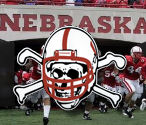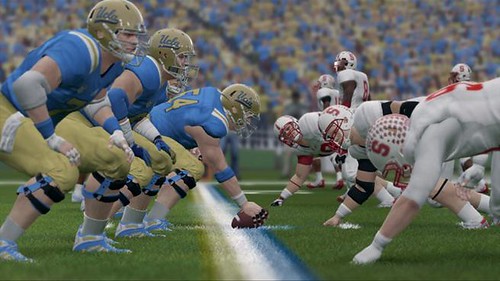-
Administrator

O'Bannon Judge Rules NCAA Violates Antitrust Law
One day following the NCAA Division I board of directors voting 16-2 to allow the schools in the top five conferences to write many of their own rules, the judge in the O'Bannon v. NCAA case ruled that the NCAA violates antitrust law and that trust funds should be established for student-athletes to share in licensing revenue.
Continue on to read more about the latest developments in this ongoing saga and how it may lead to the eventual return of EA SPORTS NCAA Football.[PRBREAK][/PRBREAK]
Per ESPN: The autonomy measures -- which the power conferences had all but demanded -- will permit those leagues to decide on things such as cost-of-attendance stipends and insurance benefits for players, staff sizes, recruiting rules and mandatory hours spent on individual sports.
From CBS Sports: A federal judge ruled Friday that the NCAA's rules prohibiting athletes from being paid for use of their names, images and likeness violate antitrust law because they "unreasonably restrain trade." The ruling in the five-year case of the Ed O'Bannon lawsuit allows for trust funds to be established for athletes to share in licensing revenue.
In a 99-page opinion, U.S. District Judge Claudia Wilken issued an injunction “that will enjoin the NCAA from enforcing any rules or bylaws that would prohibit its member schools and conferences from offering their FBS football or Division I basketball recruits a limited share of the revenues generated from the use of their names, images, and likenesses in addition to a full grant-in-aid.” Wilken said the injunction will not prevent the NCAA from implementing rules capping the amount of money that may be paid to college athletes while they are enrolled in school, but the NCAA will not be allowed to set the cap below the cost of attendance.
The injunction will also prohibit the NCAA from “enforcing any rules to prevent its member schools and conferences from offering to deposit a limited share of licensing revenue in trust for their FBS football and Division I basketball recruits, payable when they leave school or their eligibility expires,” Wilken wrote. Her injunction will allow the NCAA to set a cap on the money held in that trust, but prohibits the NCAA's cap to be less than $5,000 for every year an athlete remains academically eligible to compete. The money in the fund would be payable to athletes upon expiration of their athletic eligibility or graduation, whichever comes first.
Wilken said the injunction will not be stayed pending any appeal of her order, but will not take effect until the start of the next football and basketball recruiting cycles. The injunction will not affect any recruit who will enroll in college before July 1, 2016, Wilken wrote. The plaintiffs are allowed to recover their costs from the NCAA.
For the full article from CBS Sports' Jon Solomon, click here.
Following the decision, the NCAA issued this statement:
To view the entire 99-page ruling (PDF) click here.
While it is considered likely that there will be an appeal by the NCAA, they must respond by August 20. They also must prepare for the lawsuit against them filed by sports attorney Jeffrey Kessler that seeks to establish a free market for athletes.
How does this ruling effect the possibility of NCAA Football returning? Some outlets weigh in:
SB Nation: The biggest winner? The NCAA. They were already likely to give students NIL money in the future, and now they don't have to open up the market. This is the best scenario it could have possibly hoped for. However, you could also classify video game players as the biggest winners. Since Judge Wilken ruled restrictions on athletes being paid for the use of their likenesses is illegal, that means athletes could theoretically be paid for their appearances in video games, and EA said that it would like to bring back the game if it can pay players.
Pastapadre: Essentially EA could now negotiate with the NCAA for rights to all athlete names and likenesses by paying a lump sum that would then be directed in part to the trust for the players. The NCAA can appeal but the injunction will not be stayed during that process. It’s unclear then for now whether EA Sports would be able to secure the rights they had before, and obtain those of the players, immediately so they could begin production on a college football game for next summer. It may be a bit optimistic to expect that to happen with legal hurdles still in place but it now appears to be a real possibility within the next few years while a more unfavorable ruling for either side likely would have pushed that window back much farther.
***
You can view the page at http://www.thegamingtailgate.com/for...-Antitrust-Law
 Posting Permissions
Posting Permissions
- You may not post new threads
- You may not post replies
- You may not post attachments
- You may not edit your posts
-
Forum Rules











 Reply With Quote
Reply With Quote
Bookmarks